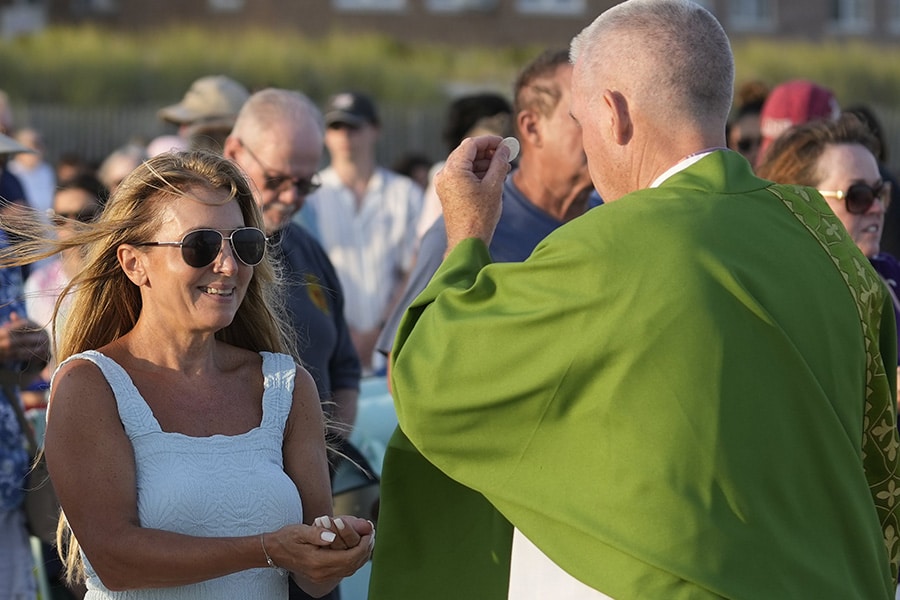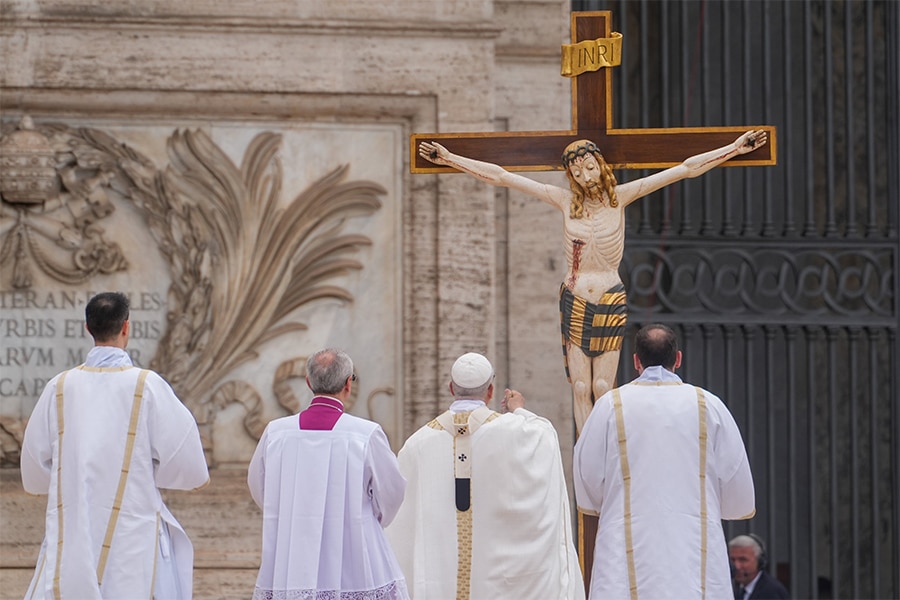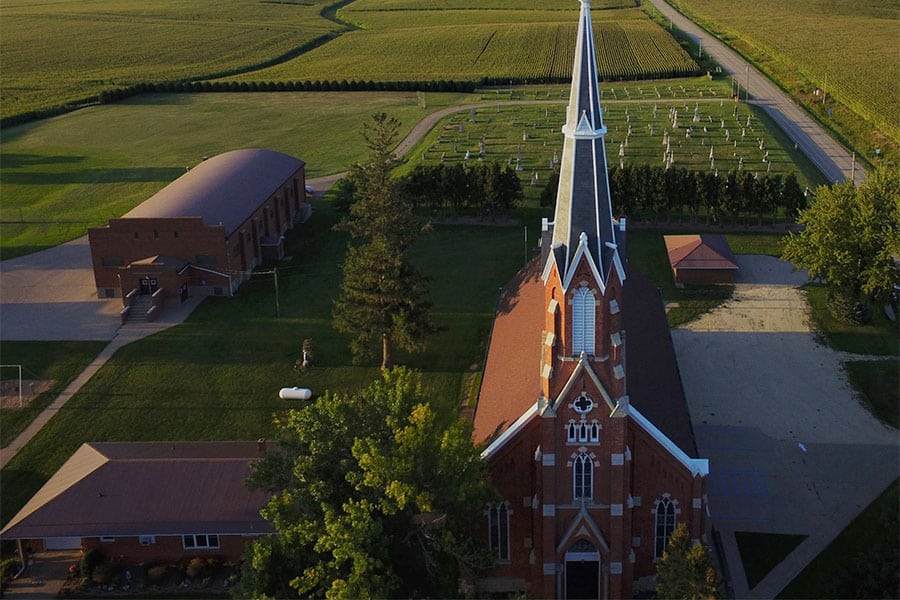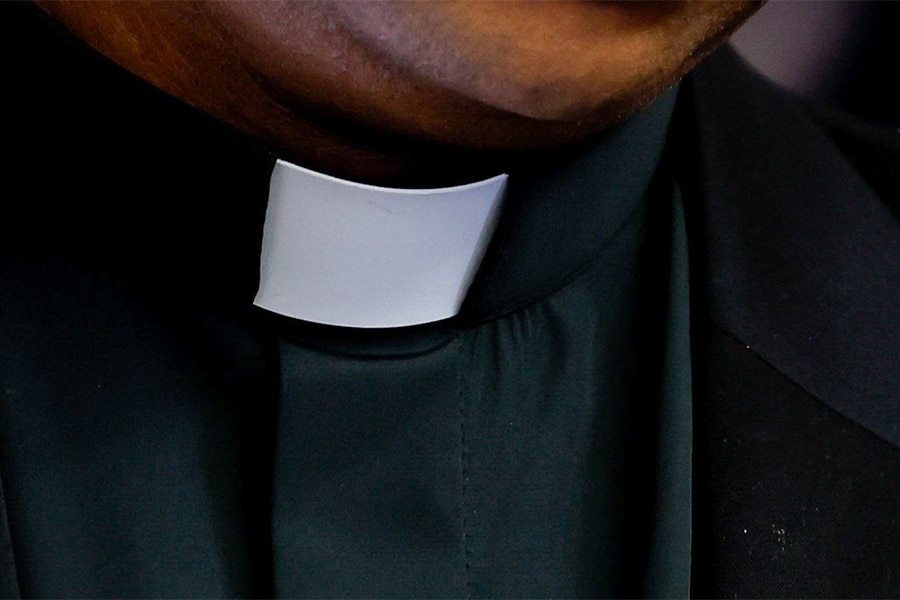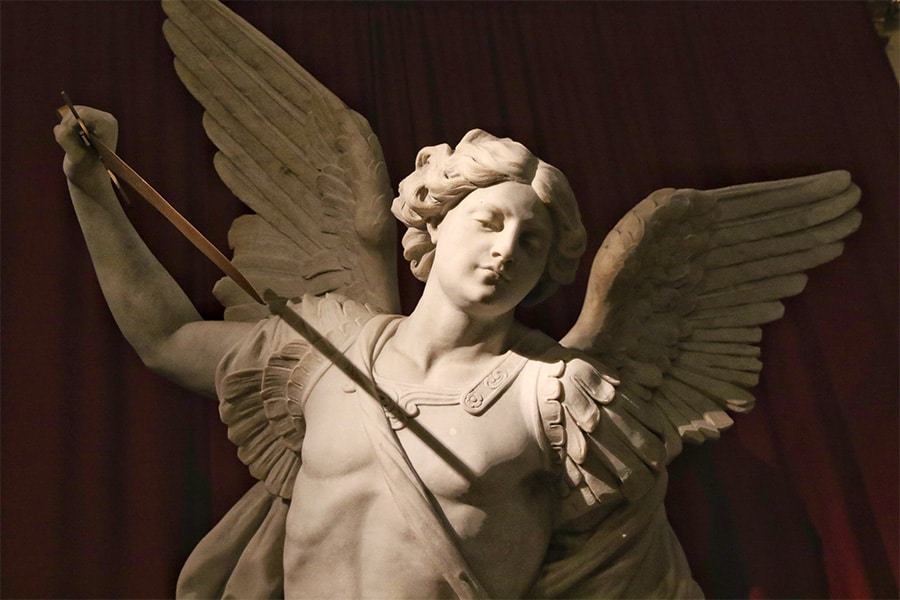Q: I was married in a non-Catholic wedding ceremony, then divorced years later civilly. Once I became Catholic and wanted to marry again, I got an annulment of the first marriage. My non-Catholic friends and relatives said this was a Catholic cop out to get around Jesus’ prohibition against divorce, by saying that the first marriage “never happened.” Could you comment? (Indiana)
A: I certainly wouldn’t call the church’s marriage nullity process a “cop out,” but I could see where non-Catholics might have this misunderstanding.
First, it’s good to keep in mind that the church’s teaching on marriage, divorce and the possibility of a marriage being declared null is actually rooted in Scripture. In particular, in Chapter 19 of Matthew’s Gospel we read that:
“Some Pharisees approached [Jesus], and tested him, saying, ‘Is it lawful for a man to divorce his wife for any cause whatever?’ He said in reply, ‘Have you not read that from the beginning the Creator ‘made them male and female’ and said, ‘For this reason a man shall leave his father and mother and be joined to his wife, and the two shall become one flesh’ So they are no longer two, but one flesh. Therefore, what God has joined together, no human being must separate.’ They said to him, ‘Then why did Moses command that the man give the woman a bill of divorce and dismiss her?’ He said to them, ‘Because of the hardness of your hearts Moses allowed you to divorce your wives, but from the beginning it was not so. I say to you, whoever divorces his wife (unless the marriage is unlawful) and marries another commits adultery'” (Mt 19:3-9).
This passage provides the foundation for the Catholic teaching on the absolute permanence of marriage and the theological impossibility of a true divorce. However, in this Gospel passage Jesus also notes that divorce and remarriage is possible “if the marriage is unlawful.” Here, Jesus is referencing the fact that not every couple seeking to marry has the legitimate freedom to do so, and not every apparent marriage has all the factors necessary for a true bond to have formed.
In some ways this is basic common sense. To give one illustration, few people would consider a literal “shotgun wedding,” where a couple was forced to say “I do” under threat of violence, to result in a valid marriage bond. Likewise, almost nobody would say that immediate family members could marry each other.
Granted, these are extreme examples! But there are many other less dramatic things that could render an attempted marriage invalid. For instance, grave psychological disturbances could leave one or both parties incapable of consent, or one of the parties might have been seriously dishonest with respect to their intentions going into the union.
In order to ensure that declarations of nullity are not simply “rubber stamped” or “cop outs,” the church has a specific process, carried out through the ministry of diocesan marriage tribunals, for investigating whether or not a marriage was invalid.
As a broad overview, after identifying a specific reason why the marriage in question may have been invalid, the tribunal invites both parties to submit evidence — such as witness testimony, or certain kinds of documents — that could potentially prove or disprove this claim. When all the evidence is gathered, both parties can submit written statements arguing their case. Then a tribunal official called the Defender of the Bond “plays devil’s advocate” and points out all the potential reasons why the marriage bond should be upheld in a given case. Finally, a panel of three canon lawyer judges read over the assembled evidence and arguments, privately share their opinions with each other, and come to a conclusion about whether a declaration of nullity should be issued.
Incidentally, this is why the popular term “annulment” is technically incorrect. The church does not actively annul marriages. Rather, an already-null marriage is simply declared to be so.
Read More Question Corner
Copyright © 2024 OSV News


